Dashnor Kaloçi
Memorie.al publishes the unknown story of Mihal Ciko, originally from the city of Korca, who emigrated to Bucharest with his family in the early years of the last century where, after graduating from the Academy of Fine Arts of that city, for some time he directed the “Lira” choir set up by the Patriotic Society of the Albanian Colony in Bucharest, working closely with Asdren and Viktor Eftimi. The return of Ciko to Albania in 1920, following the call of the Albanian government for its emigrants to come and fight against the Italians in the Vlora War, after which at the invitation of the Prefect of Korca, Hil Mosi, together with Lasgush Poradeci and Vangjush Mihon, went to the city where they formed the Fine Arts Society with the choir and theatrical group, giving performances and concerts in other cities in the country.
Ciko’s recording in 1921 at the Giuseppe Verdi Conservatory of Milan after a study right acquired by the Albanian government of that time and with the help of world-renowned actor Alexander Mosiu, where, after graduating in 1926, he stayed for long in Italy, where besides working as a Kanto lecturer at the Conservatory “Claudio Monteverdi”, he successfully performed as an opera soloist in some of the most vocal scenes and theaters of the Italian cities of that time, occasionally going to Romania as a soloist at various concerts near the Cluj Opera, where he received his first music lessons.
The return of Ciko to Albania during the period of the Zog Monarchy and the support and assistance he provided to some of the most popular lyric singers of that time, such as Jorigjie Truja, Lola Gjoka, and Tefta Tashko Koco, which helped him earning a scholarship to the Academy of Fine Arts in Montpellier, France, and inviting to Albania famous Italian singers who came and performed various concerts. Appointment of Cico in 1942 as music director at Radio Tirana, where he served with a rare passion and will even after the end of the War, making an outstanding contribution to the founding of the State Philharmonic, the Higher Institute of Arts and Theater. Opera, where he served as a soloist, lecturer and music director until the age of 75, preparing some students who later became the most popular opera singers, such as Mentor Xhemali, Gaqo Çako, Gjergj Eerebara, Pandi Zguro, etc.
Mihal Ciko was born in the city of Korca on August 29, 1901, to a well-known civic family living in one of its characteristic alleys. His father, though engaged in craftsmanship, was one of the most famous music masters of that city. Ciko was also well known for his patriotic activity, where his home was one of the bases where Mihal Grameno, Themistokli Germeni, Kristaq Kosturi, and many other Korça patriots gathered.
At the Albanian school in Bucharest
Mihali started her classes at the First Albanian Korça Classroom, being one of her first students. From his early days in that school, Mihal retained a scratch on his forehead from the clashes that those children had with their peers of the Philo-Greek families who did not want to allow them to they taught Albanian at that school. In 1909, the Ciko family, like many others, was affected by emigration, moving to Romania. In Bucharest, where the Ciko family settled, Michal continued his education in his native country and then enrolled at the Conservatory of Fine Arts in the Romanian capital for the Canton branch. At this school, he also received his first music lessons, which he would later devote himself to with extraordinary passion and will throughout his life. Before he began his studies, at the age of 15-16, Mihal had approached the patriotic Albanian colonies of Bucharest that had formed their “Lira” association. This artistic society, of which Mihali belonged, developed for several years a rich cultural and artistic activity. In the first performances of this society, including the great poet Asdreni, the famous playwright Victor Eftimiu, the lecturer of Romanian opera from Boboshtica, Mihail Tuscany, Mihal was activated as a member of the choral group, and later as conductor of that group. At that time, Mihal and Asdren composed a series of patriotic songs sung by the Bucharest Albanian colonies, which were later sung in the city of Korça by the characteristic band of elders in that city. Alongside the musical activity, Mihal Ciko also participated in the first theatrical performances such as Sami Frasheri’s “Besa” and “Death of Pyrrhus” by Mihal Grameno. These plays appeared very successfully there and had a tremendous impact on the Romanian Albanian colony.
Returns to fight in Vlora in the ’20s
In the summer of 1920, the Ciko family returned to Albania, responding to the call of the Albanian patriots and the government to emerge from the Lushnje Congress led by Sulejman Delvina to fight against the Italian army in Vlora. Along with Mihal Cikon, well-known Korça painter Vangjush Mio and famous poet Lasgush Poradeci returned to fight in Vlora. After the end of the Vlora War, the mayor of Korça, Hila Mosi, called a group of boys from that city, including Vangjushi, Lasgushi, Mihali, etc., to form the first artistic groups in “Little Paris” as Korça was known. At that time. To this call of Moses, responded a number of future Korça boys, who in December 1920 founded the Society of Fine Arts. Its creation was welcomed with great enthusiasm by the intellectual elite of that city and all Korça art lovers in general. At the head of this association were Vangjush Mio and Mihal Ciko, who made a great contribution, especially in setting up the theater and choral group. Shortly after the creation of this association, Mio and Ciko performed in public, the patriotic songs of the Romanian Albanian colony, and some theatrical plays, with great success. In addition, works by Mihal Grameno, Sami Frasheri, and Foqion Postoli appeared, which were given not only in the city of Korça but also in the surrounding villages. Mihal Grameno also wrote in the press at the time.
At the Giuseppe Verdi Conservatory in Milan
In 1921, after experience and artistic experience he had acquired in the Albanian colonies of Bucharest and which had continued for more than a year in his hometown, Korça, Ciko, was able to secure a right to study at the famous Conservatoire. Milanos, “Giuseppe Verdi”. For his recording in that conservatory, he had the great help of the famous actor of Albanian origin, Alexander Moisiu, and the well-known playwright of Albanian descent, Victor Eftimiu, who, having a great reputation at that time as artists, influenced this school to study for the first time an Albanian. At that conservatory, Mihal enrolled at the Canton University, which he graduated with excellent results, graduating in 1926. Two years after graduation, he defended his master’s degree for Kanto at that conservatory. During his time in Milan, Mihal participated as a soloist in various Italian stages and theaters. So while still a student, he starred in Verona’s Polikarma Theater, Alfavio’s Kavaleria Rustikana, and Palacio where he played Silvio successfully. Likewise, in 1924 when he was a third-year student in Milan, Mihali, he participated in an international song competition, where he sang two popular songs. “The miserable whistle, the whistle” and “Bloom the flower, bloom.” The brilliant interpretation of these songs led him to receive the first prize.
Soloist and lecturer in “Claudio Monteverdi”
After the end of the conservatory, since in Albania he could not practice his profession, Mihal decided to stay in Italy, performing as a soloist in its most famous scenes. He was also able to work for several years as a Kanto lecturer at the Claudio Monteverdi Conservatory. He would also go to Romania several times to perform as a soloist in the Cluj opera. After completing his studies in 1926, Mihal returned to his hometown to spend a vacation with his family in Korça. During this time, he met the famous soloist, Tefta Tashko Kocho, who helped her, by interfering with the Ministry of Education at the time, to obtain a scholarship to the Academy of Fine Arts in Montpellier, France.
With Italian soloists in Albania
During his years of study in Italy, Mihal occasionally returned home, and on one of these trips, he brought from Italy two of the country’s most vocal soloists, Egidio Caldi and Anita de Alba, who, at Cico’s insistence, would perform for several days their successful repertoire, not only in the Korça scenes but also in those of Shkodra, Elbasan and Tirana. Another famous Italian musician, Alessandro Grenada, would come to Albania a few years later, exactly in 1933, always at the insistence of Mihal, to perform the opera “Tosca”. His friendship with famous Italian soloists and baritones would continue for years, as he would maintain a constant correspondence with them. In 1942, one of the hundreds of Albanian anti-fascists who would leave Italy to come to the occupied homeland was Mihal Ciko.
In 1942 on Radio Tirana
Shortly after his arrival in Albania, Mihal started working at Radio Tirana, becoming its first music director. He worked hard to set up this famous radio orchestra. On this occasion, he invited all the musicians and instrumentalists of the Italian army stationed in Albania, including Umberto Rambin. During the Anti-Fascist War, Mihal taught patriotic songs to the tyrannical youth, and for this reason, he was elected as one of the main leaders of the Communist cell in Radio Tirana. He was therefore captured and interned twice by the Italians and then by the Germans. He and his colleague, Behije Çela, would escape arrest and fire only with the intervention of Mihal Zallari, the Speaker of the Albanian Parliament at the time, who took over all the staff of Radio Tirana. At the end of 1944, at the end of the war, he and his colleague, Umberto Rambi, gave concerts in front of the partisan brigades and Commander-in-Chief, Lieutenant General Enver Hoxha, the Prime Minister of the Albanian government.
In Philharmonic and Opera
In the role of music chief of Radio Tirana, Mihal Ciko stayed until 1946, after which he left to work with amateur musicians in several cities of Albania. In 1951, the State Philharmonic was created, where he began his career as a lecturer and at the same time as a soloist. He would later work as a music lecturer at the “Jordan Misja” Art School in Tirana, and with the founding of the Opera and Ballet Theater in 1953, Mihal is appointed director, lecturer and lyric soloist. The first opera to be staged by the troupe of that theater was Drogmirak’s “Rusalka”, directed by Mihal, who also performed the role of Mullis. In the ensuing years, as part of that troupe, Ciko also performed successfully in other operas, such as “Cavalleria Rusticana”, “Palacio”, “Sold Out Bride”, etc. At the State Philharmonic, Mihal stayed until 1962, when the top Art Institute opened in Tirana. At that institute (later the Conservatory), he worked full-time as a Kanto lecturer and was the founder of that branch until 1975, when he turned 75 and retired. In 1954, when renowned singer, tenor Ramiz Kovacs, went to study in Bulgaria, world-renowned great master Bamburov told him: “Why did you come here, you have Cikon in Albania. I had a classmate and I studied and sang with her. ”
Cako, Kovaci, Erebara, Kosta, Mingomata, Zguro etc., students of Ciko
Throughout those years, Ciko served with great passion and will, preparing some of the country’s most popular singers such as Gaqo Çako, Gj. Erebara, Pandi Zguro, Vangjo Costa, Albanian Mingomata, etc. Although retired, Mihal went to the Opera House to teach young singers and meet his close friend, pianist Johan Botka. Although at a very early age, he collaborated with the well-known concertmaster, Botka, on various musical pieces. The great master, Mihal Ciko belongs to the great merit of the founding of the Albanian Opera, where he was the first to perform as a lyric soloist in the 1920s, which he continued for several decades, preparing famous singers who afterward they gained great fame in Albania and in various scenes around the world, such as Tefta Tashko, Marie Kraja, Georgia Truja, Kostandin Koco, Gjuzepina Kosturi, Mentor Xhemali, Gaqo Cako, Ramiz Kovaci and even the youngest. A great help in creating the conditions and environment in his work, the great master Ciko gave his wife, Evanthi Zoraqi Ciko, a teacher and Methodist known for several decades and director of the Zyber Hallulli Orphanage. in Tirana. Mihal Ciko passed away on January 23, 1986, at the age of 86, and the path he started at Radio Tirana and the Opera Theater continued with the same will, passion and dedication his son, Jean Ciko, one of the biggest personalities and names of Albanian music and culture. Memorie.al




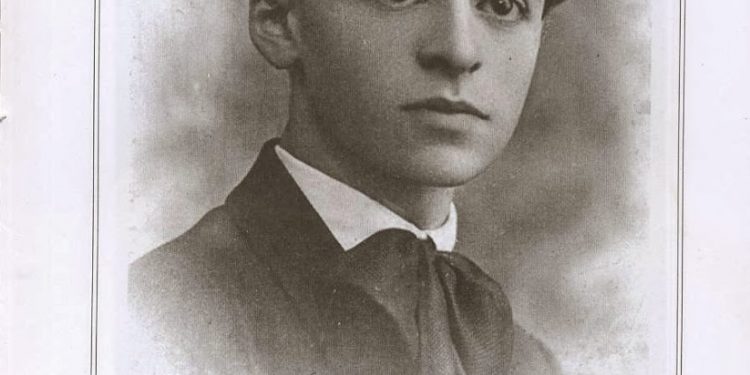

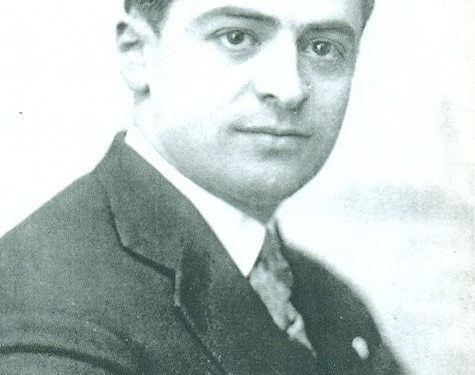
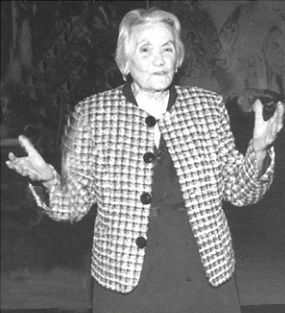
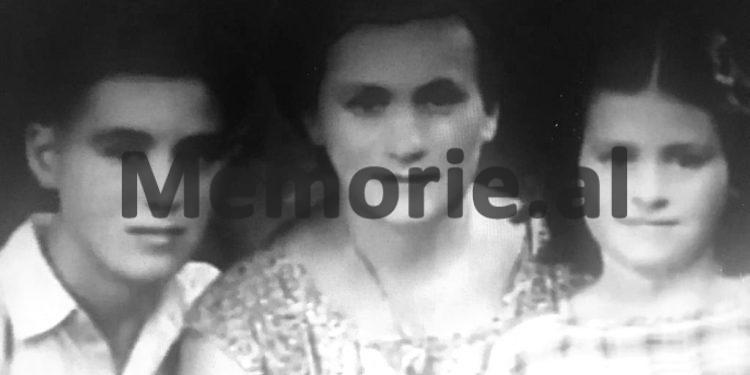
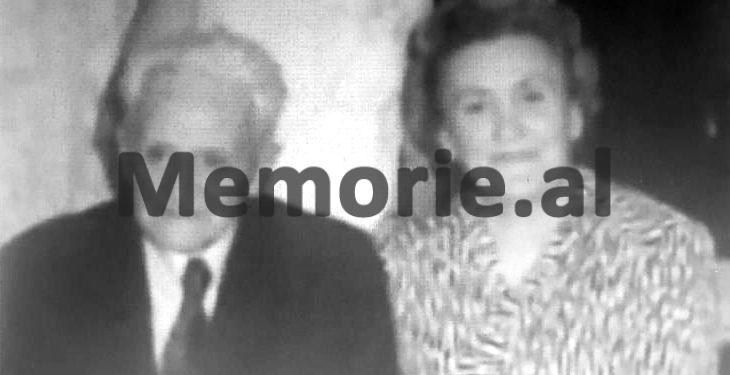
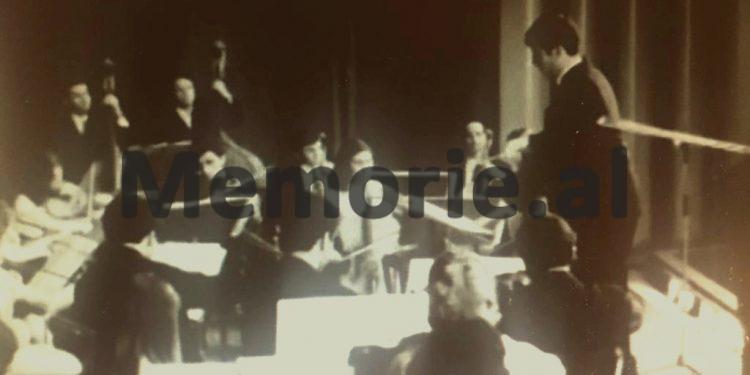
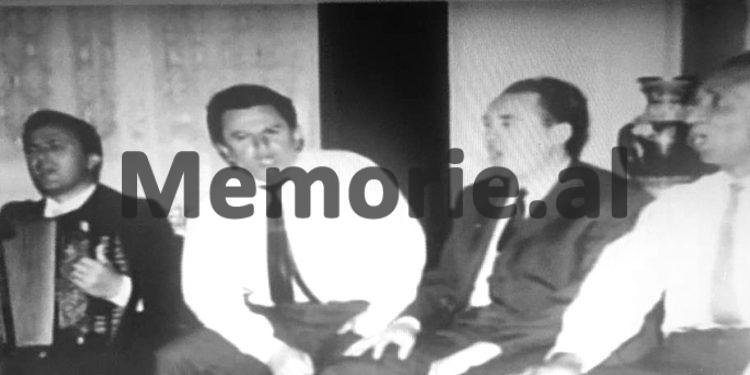
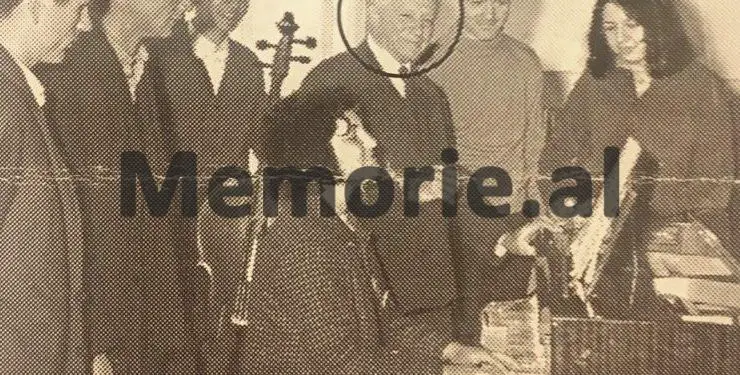
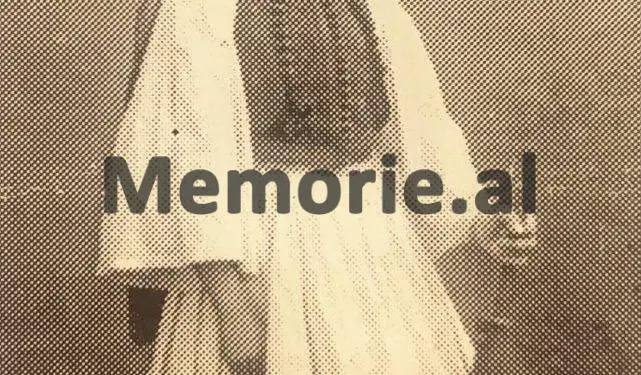
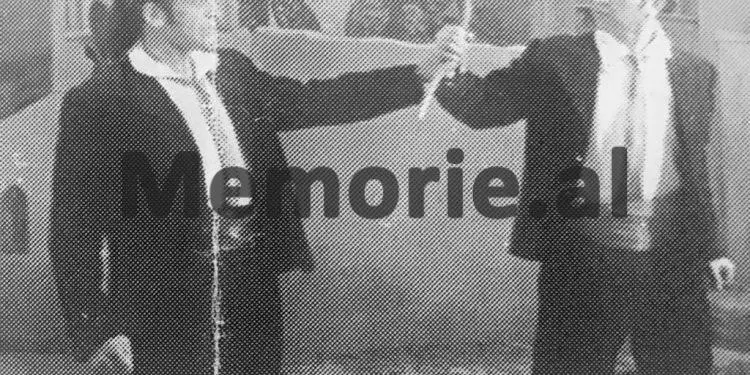
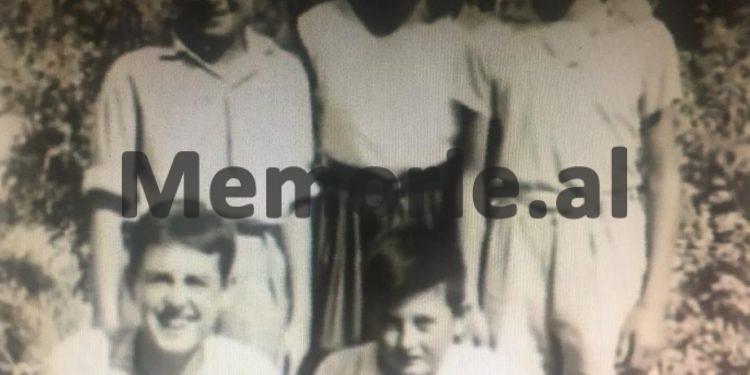
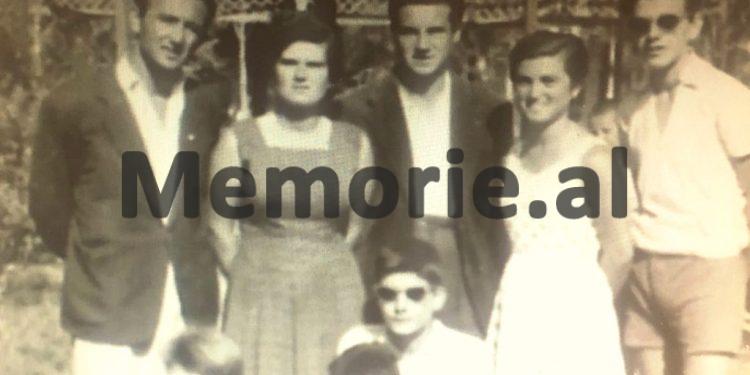
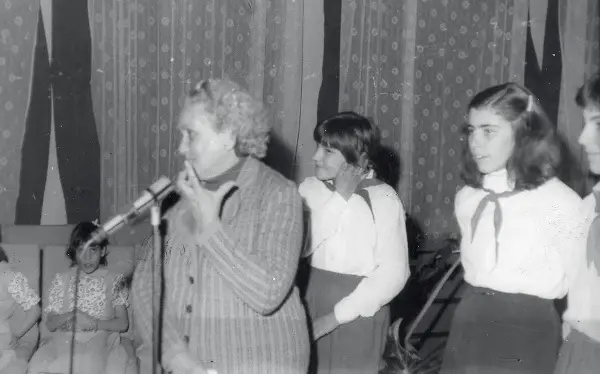
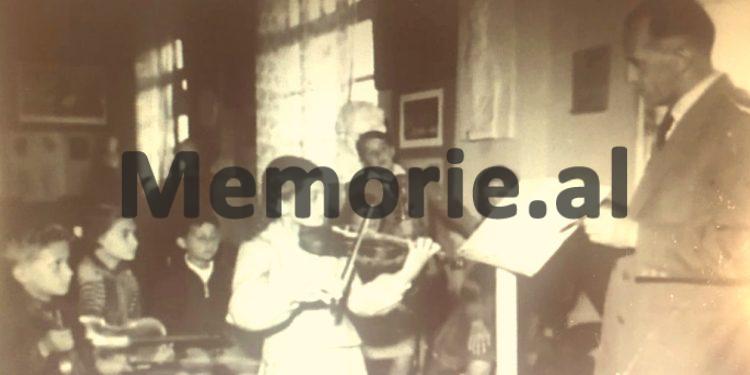
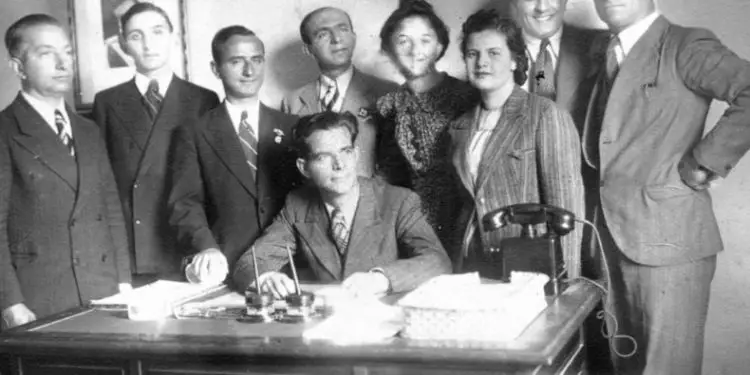
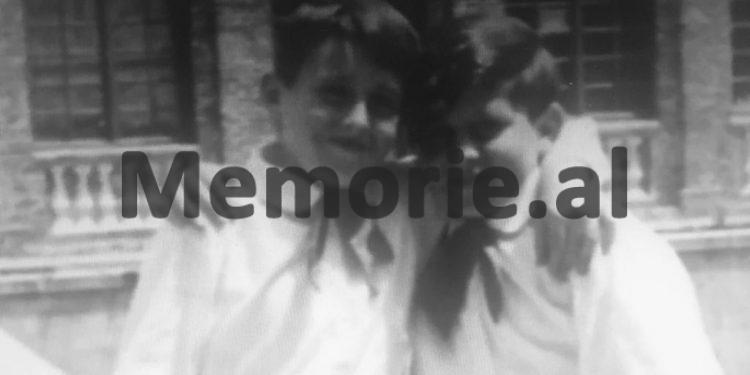
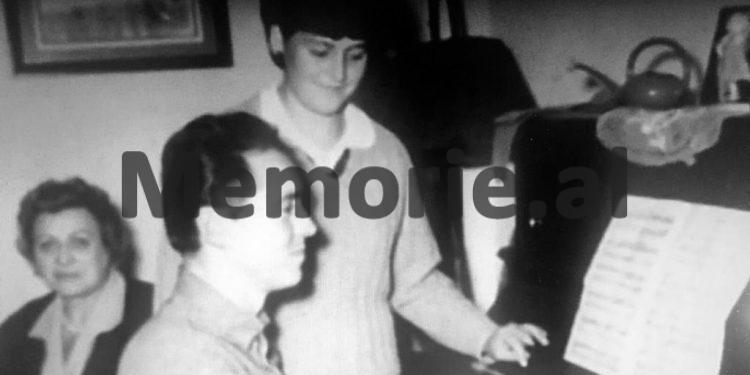
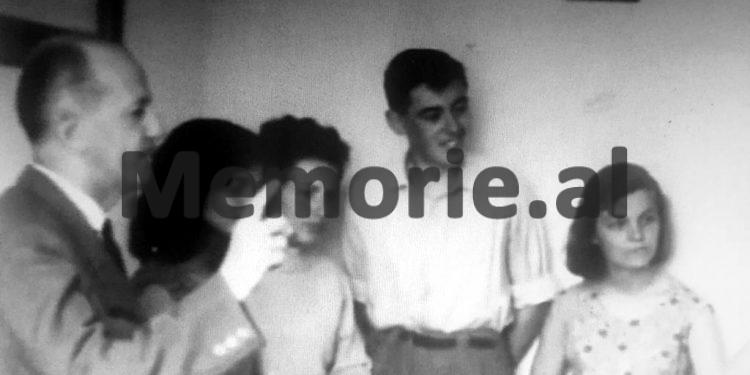

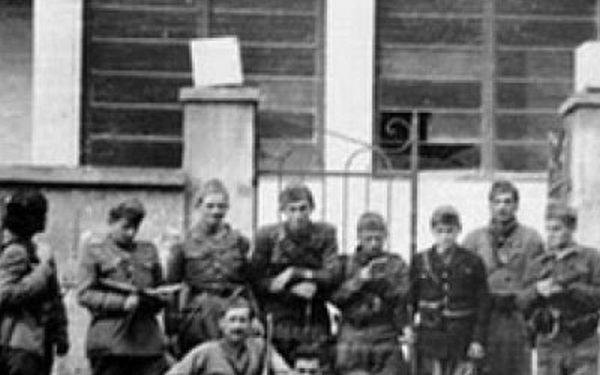
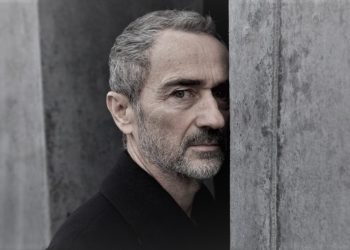
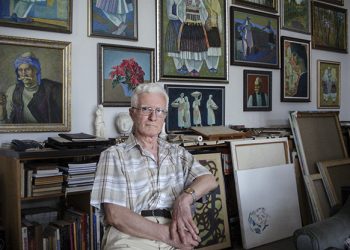
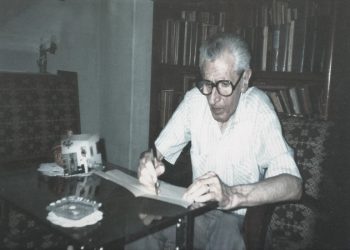
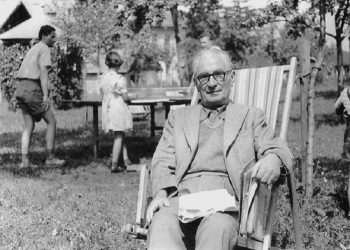

![“Count Durazzo and Mozart discussed this piece, as a few years prior he had attempted to stage it in the Theaters of Vienna; he even [discussed it] with Rousseau…” / The unknown history of the famous Durazzo family.](https://memorie.al/wp-content/uploads/2026/02/collagemozart_Durazzo-2-350x250.jpg)
